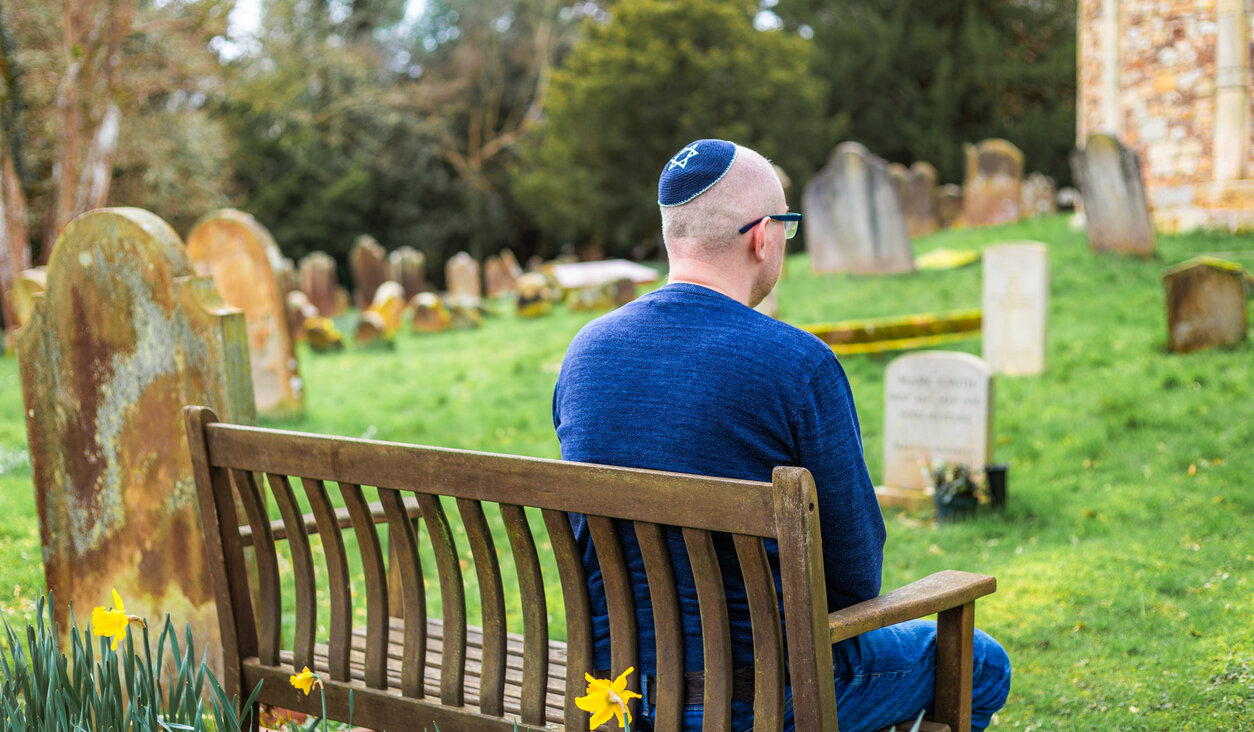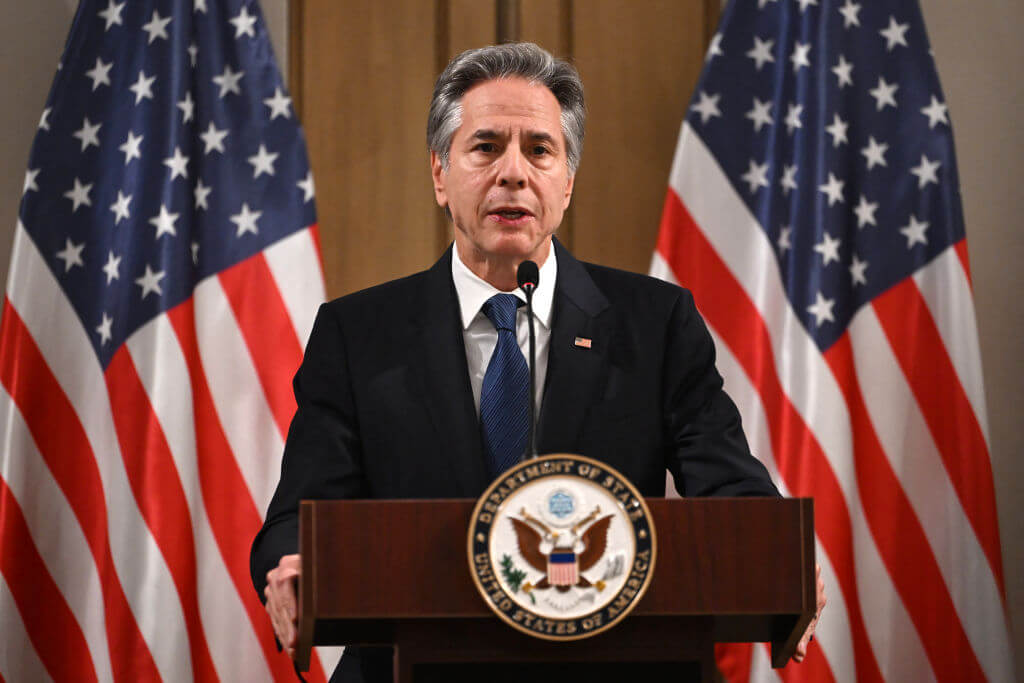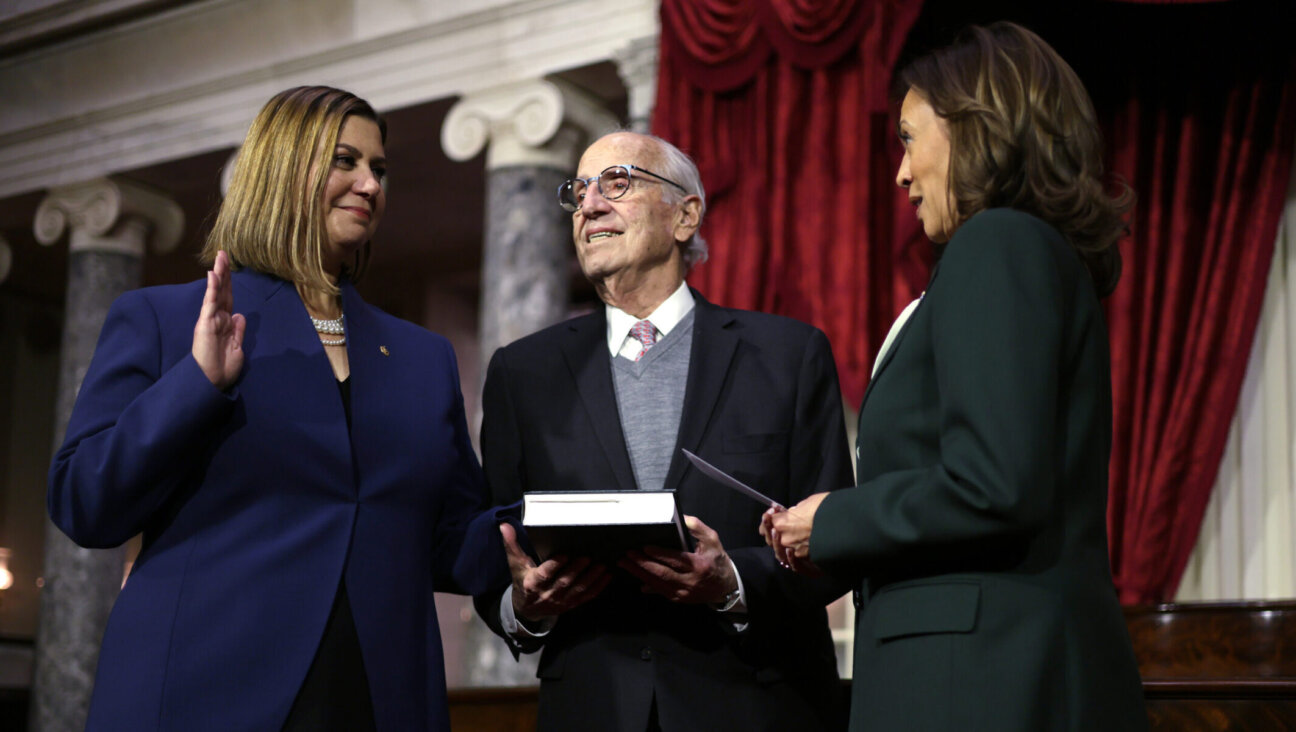How Gene Wilder and Gilda Radner became “a match made in meshugas”
A new play, ‘Gene & Gilda,’ tells the story of a Jewish Hollywood power couple’s rocky romance
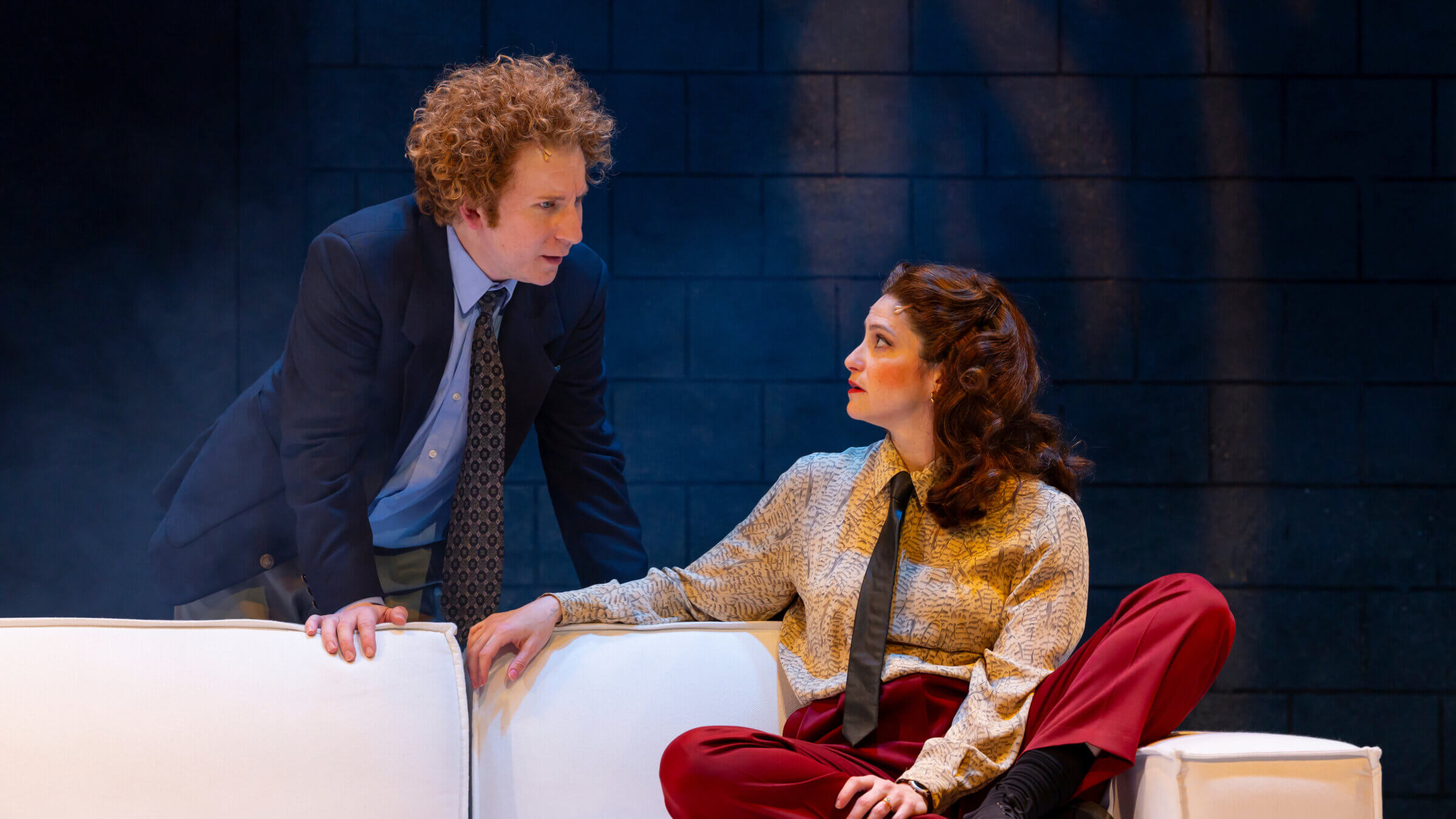
Jonathan Randell Silver (left) and Jordan Kai Burnett (right) star in Gene and Gilda at the George Street Playhouse in New Brunswick, New Jersey Photo by T. Charles Erickson
Gene & Gilda is a new play about two Jewish Hollywood comedy legends that ends, as in real life, with tragedy.
When Gilda Radner was diagnosed with ovarian cancer in 1986, the Saturday Night Live actress wrote a memoir detailing her experiences with fame, love and disease. The book, published posthumously after Radner died at age 42, is dedicated to her second husband Gene Wilder, and it opens with a chapter about their relationship.
“It felt like my life had gone from black and white to technicolor,” Radner wrote about meeting Wilder for the first time. “I was bitten with love.”
On stage in New Brunswick, New Jersey, Saturday night, this love came to life with Wilder shouting, “That’s emotional blackmail!” when Radner promises to torment him until he finishes his film script. This love also looks like Radner snarkily responding, “That’s my favorite kind. It’s part of the Jewish tradition” and calling Wilder a “fickle sonuvabitch.”
In Gene and Gilda, playwright Cary Gitter (whose previous work includes The Sabbath Girl and How My Grandparents Fell in Love) has taken bits of Radner’s memoir – as well as excerpts from Wilder’s memoir, SNL documentaries and hours of interview footage – and transformed the material into a riotous one-act drama. The story recounts the explosive, six-year relationship between the two Jewish comedy icons.
The result is a romp through a chaotic, but passionate Hollywood marriage. The play amuses and provides glitzy escapism, even though Gitter’s script is fairly surface-level, and the actors’ performances sometimes feel more appropriate for a Wilder-Radner comedy than a tragicomic bio-drama.
Gitter introduces the story through a frame narrative of Wilder (Jonathan Randell Silver) giving a television interview to a reporter, the latter of whom is only a voice offstage. Wilder, sheepish and anxious, initially expresses reluctance to discuss Radner at all, until Radner (Jordan Kai Burnett) bursts onto stage with a suitcase. “Off limits?” Radner shouts. “You want to keep me off-limits?”
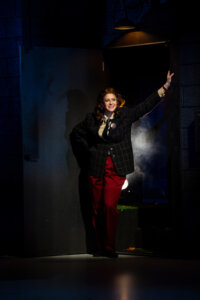
What follows is a behind-the-scenes play-by-play of each major checkpoint in Wilder and Radner relationship, spanning from 1981-1987. Wilder and Radner both break the fourth wall to tell the reporter their version of events, often interrupting and contradicting each other. Think The Last Five Years or A Marriage Story, or any other two-hander about a relationship doomed to fail, but with the slapstick and Yiddishkeit gallows humor dialed up.
At the beginning of their relationship, Radner is married to SNL guitarist and bandleader G.E. Smith, and Wilder is living off his earnings from Willy Wonka and Mel Brooks movies in a mansion in Los Angeles. The two meet and hit it off on the film set of Hanky Panky, a zany comedy directed by Sidney Poitier. After shooting the film, Radner ends her marriage and moves from Connecticut to California and puts her career on pause to be with Wilder full-time.
Over the next six years, the two actors star in comedies that Wilder directed like The Women in Red and Haunted Honeymoon. They squabble, buy a dog and even marry in the south of France before the final third’s tragic, inevitable twist. One moment, the characters look as though they are about to slit each other’s throats out of frustration. Next, they duck behind a couch to have passionate sex.
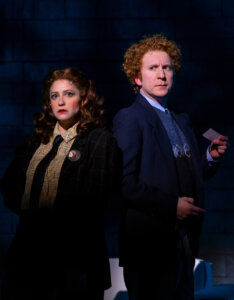
Silver and Burnett work off each other’s performances as opposites who attract, almost to the point of pastiche. Burnett is brash and bold in her depiction of Radner – not just in portraying the outspoken, proudly Jewish actress herself, but Radner’s many characters, too. (Burnett also puts on a thick accent when playing the Detroit-born Radner, which I found distracting and placed as more small-town Canadian.)
Burnett’s off-the-walls humor stands in contrast to Silver’s soft-spoken, anxious Wilder. Silver’s performance makes Wilder seem like a neurotic wimp swept away by a sassy diva, rather than a comedy legend in his own right. While the straight-man versus comedic-woman schtick delivers some great laughs early on – Burnett especially excels at physical comedy and has great timing – it eventually starts to feel corny and over-emphasized, sometimes reducing these multifaceted characters to sitcom caricatures.
One exception is a scene midway through the play, when Radner and Wilder open up to each other about childhood abuse. The audience, which had been chuckling up until that point, fell totally silent. I won’t give away the context, but Burnett’s delivery of a single “I’m sorry” brought the air out of my chest.
When the heavier moments hit, the whiplash works. The play loosens you with laughter before pulling you in for deeper emotional punches. I just wish Gitter’s script expanded more upon those tender moments, such as Wilder discussing his fear of accepting love, or his complex relationship with Jewish prayer.
Another standout scene is a dance number choreographed by Ryan Kasprzak, which hearkens back to Hollywood Golden Age films. It is one of many aspects of director Joe Brancato’s production – such as the sparse, all-white living room set with dangling television sets by Christian Fleming, or the boxy blazers and chinos by Gregory Gale – that make the glamor of 1980s Hollywood come alive.

But for all the glitz, it’s hard to gauge what exactly we are supposed to take away from Wilder and Radner’s volatile romance other than amusement and delight at their chemistry. The story becomes even harder to square given that Wilder’s widow is still alive, and there is no play about their marriage.
This is not the first production of Gene & Gilda. The Penguin Rep Theater in Stony Brook produced the play for a limited run last year. And, judging by the crowd’s reaction and standing ovation at the end of this production, I suspect Wilder and Radner will be fighting, screwing and dancing on more stages in the future.
But, like the short-lived romance itself, I wish future productions of this play could spend more time getting to know the true Gene and Gilda in their living room, and that the script could dig a little deeper into their psyches than the heightened, acrobatic versions of the actors that appear on stage. In the meantime, I hear The Producers and early season SNL are available on streaming. Holiday classics.
Gene & Gilda is playing at the George Street Playhouse in New Brunswick, New Jersey until December 22.
A message from our Publisher & CEO Rachel Fishman Feddersen

I hope you appreciated this article. Before you go, I’d like to ask you to please support the Forward’s award-winning, nonprofit journalism so that we can be prepared for whatever news 2025 brings.
At a time when other newsrooms are closing or cutting back, the Forward has removed its paywall and invested additional resources to report on the ground from Israel and around the U.S. on the impact of the war, rising antisemitism and polarized discourse.
Readers like you make it all possible. Support our work by becoming a Forward Member and connect with our journalism and your community.
— Rachel Fishman Feddersen, Publisher and CEO








